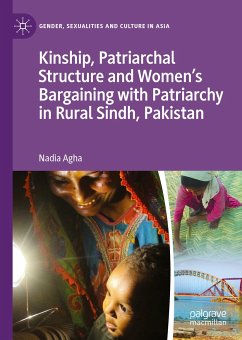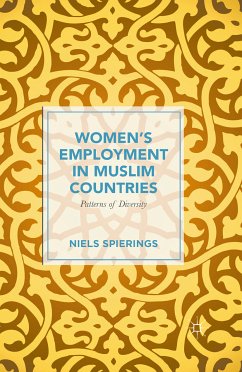Elaborating on gendered power relations in a little-known area of Pakistan, Nadia Agha explores how women in the cultural context of Khairpur actively participate in mitigating their own subordination by 'playing by the cultural rules' and hence ensure their economic survival. As poverty and social insecurity are at the foundation of why women must acquiesce to patriarchal control, she shows how they often adopt survival strategies to enable their agency to gain societal approval within prevailing strict patriarchal boundaries. Professor Agha deftly shows that when women make choices to accommodate others, this is often actually a strategy they can use to gain some semblance of power. This is an important contribution to our understanding of choices women make within patriarchy in South Asia and how they can eke out some power by doing so.
Professor Anita M. Weiss, International Studies, University of Oregon, Author of Interpreting Islam, Modernity and Women's Rights in Pakistan (Palgrave Macmillan, 2014) and Countering Violent Extremism in Pakistan: Local Actions, Local Voices (Oxford University Press, 2020)
Professor Anita M. Weiss, International Studies, University of Oregon, Author of Interpreting Islam, Modernity and Women's Rights in Pakistan (Palgrave Macmillan, 2014) and Countering Violent Extremism in Pakistan: Local Actions, Local Voices (Oxford University Press, 2020)
The book provides insights into the prevailing patriarchal system in rural Pakistan. It elaborates on the kinship system in rural Sindh and explores how young married women strategize and negotiate with patriarchy. Drawing on qualitative methodologies, the book reveals the strong relationship between poverty and the perpetuation of patriarchy. Women's strategies help elevate their position in their families, such as attention to household tasks, producing children, and doing handicraft work for their well-being. These conditions are usually seen as evidence of women's subordination, but these are also strategies for survival where accommodation to patriarchy wins them approval. The book concludes that women's life-long struggle is, in fact, a technique of negotiating withpatriarchy. In so doing, they internalize the culture that rests on their subordination and reproduce it in older age in exercising power by oppressing other junior women.
Hinweis: Dieser Artikel kann nur an eine deutsche Lieferadresse ausgeliefert werden.
Dr. Nadia Agha is Associate Professor in Sociology at Shah Abdul Latif University, Khairpur, Pakistan. She has a doctorate in Women's Studies from the University of York, England. Her recent work has been published in the Asian Journal of Social Science, Journal of Research in Gender Studies, Health Education and Journal of International Women's Studies.
Dieser Download kann aus rechtlichen Gründen nur mit Rechnungsadresse in A, B, BG, CY, CZ, D, DK, EW, E, FIN, F, GR, HR, H, IRL, I, LT, L, LR, M, NL, PL, P, R, S, SLO, SK ausgeliefert werden.
Hinweis: Dieser Artikel kann nur an eine deutsche Lieferadresse ausgeliefert werden.
"The book offers a thorough and insightful analysis ... . Agha s book provides new insights into the impact of patriarchy in rural Pakistan ... . The book emphasises the importance of education, economic independence, and social support networks in empowering women and challenging local and global feminist narratives. It is essential reading for scholars and practitioners interested in gender, feminism, development, and sociology. Furthermore, it offers hope and strategies for change in patriarchal contexts. Therefore, it should be widely read." (Sadiq Bhanbhro, Feminist Encounters - A Journal of Critical Studies in Culture and Politics, Vol. 9 (1), 2025)
Es gelten unsere Allgemeinen Geschäftsbedingungen: www.buecher.de/agb
Impressum
www.buecher.de ist ein Internetauftritt der buecher.de internetstores GmbH
Geschäftsführung: Monica Sawhney | Roland Kölbl | Günter Hilger
Sitz der Gesellschaft: Batheyer Straße 115 - 117, 58099 Hagen
Postanschrift: Bürgermeister-Wegele-Str. 12, 86167 Augsburg
Amtsgericht Hagen HRB 13257
Steuernummer: 321/5800/1497
USt-IdNr: DE450055826
Bitte wählen Sie Ihr Anliegen aus.
Rechnungen
Retourenschein anfordern
Bestellstatus
Storno









